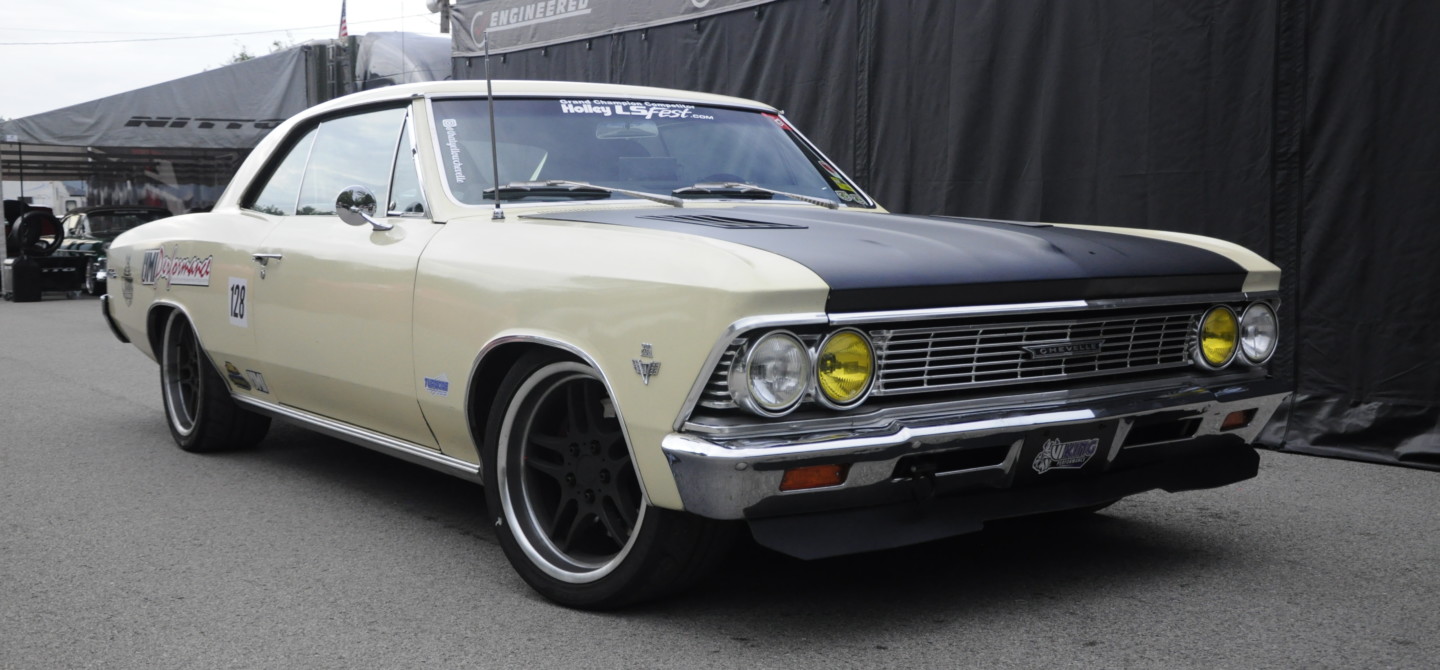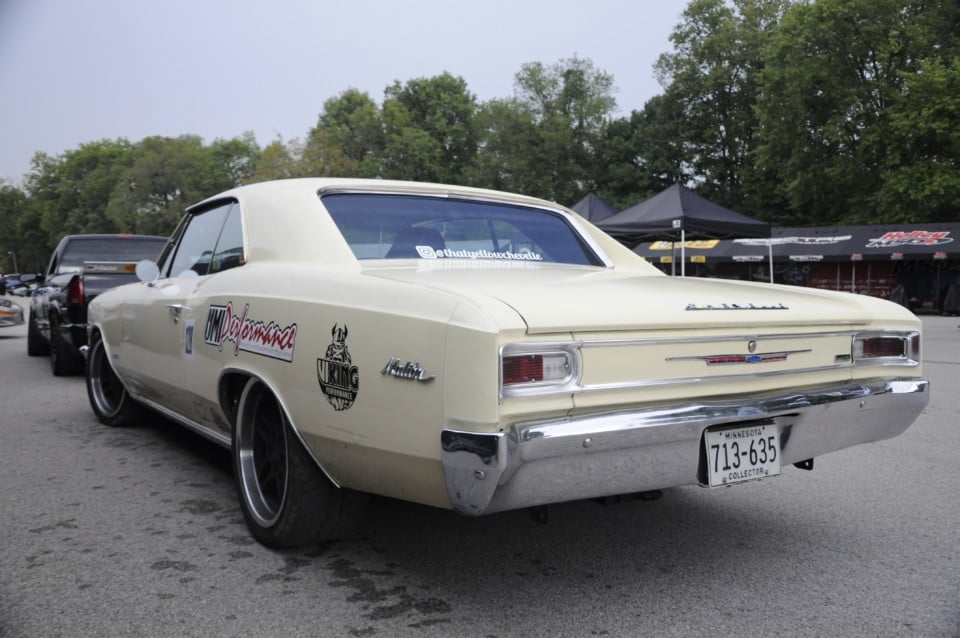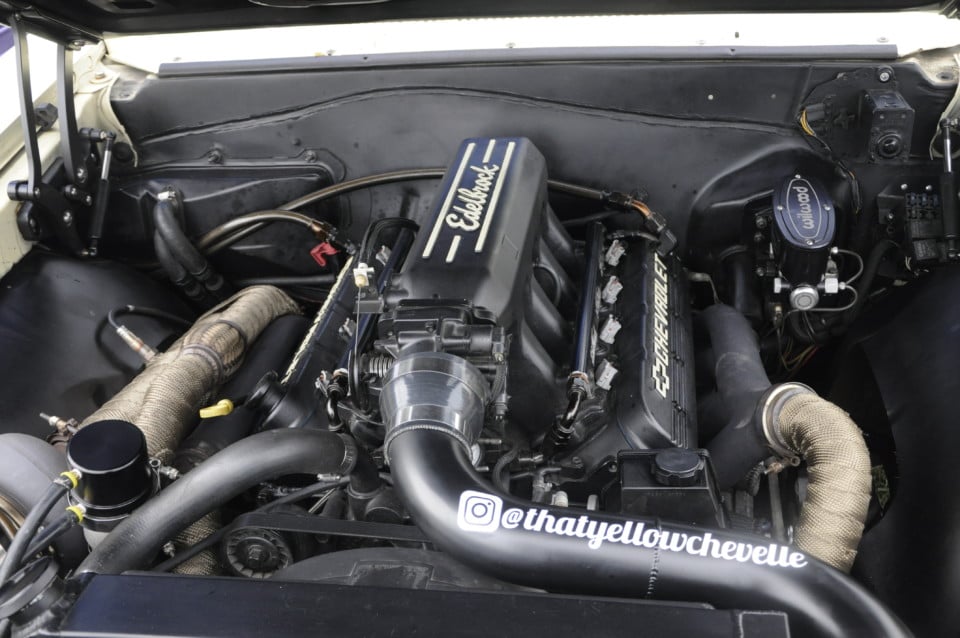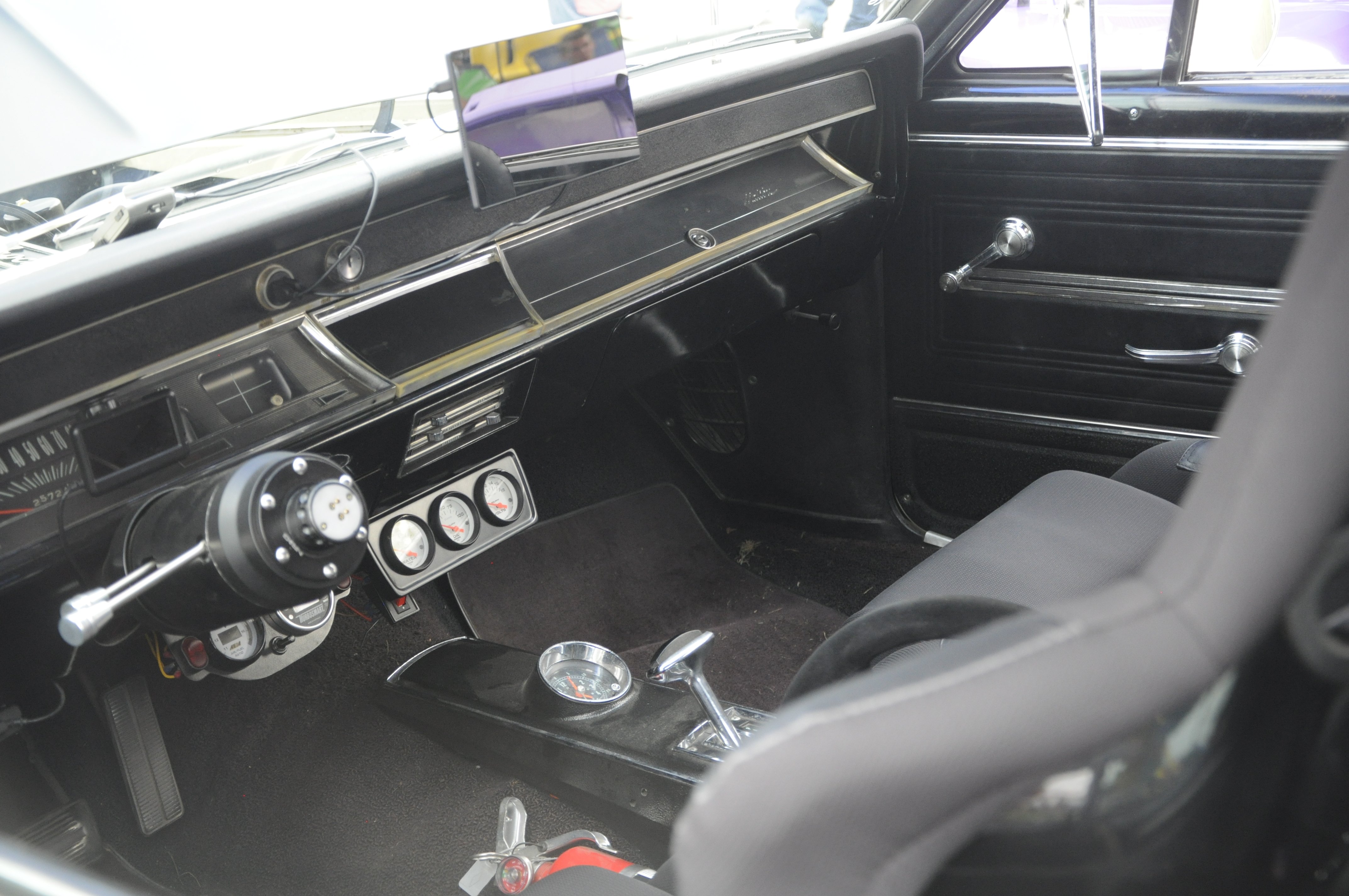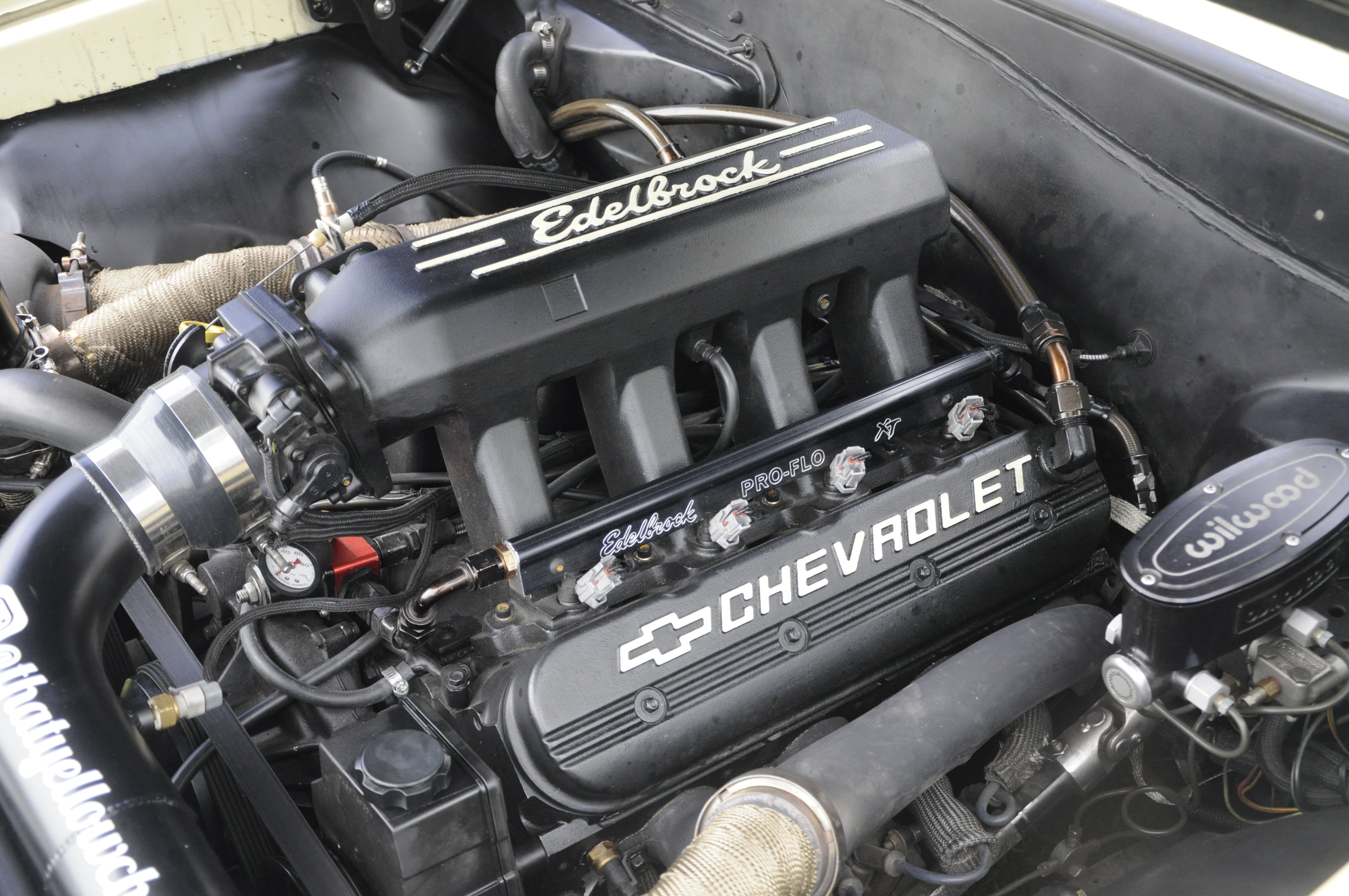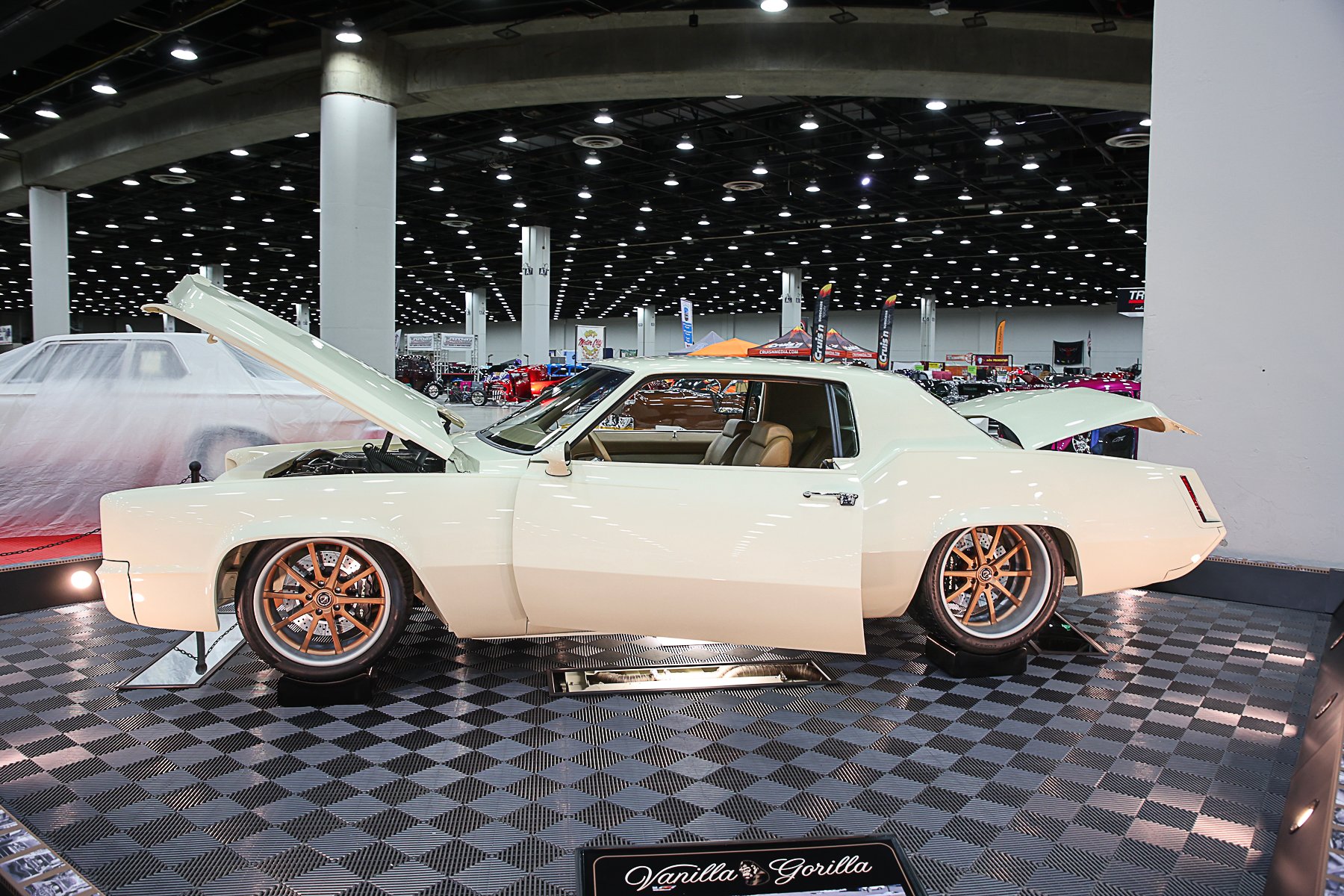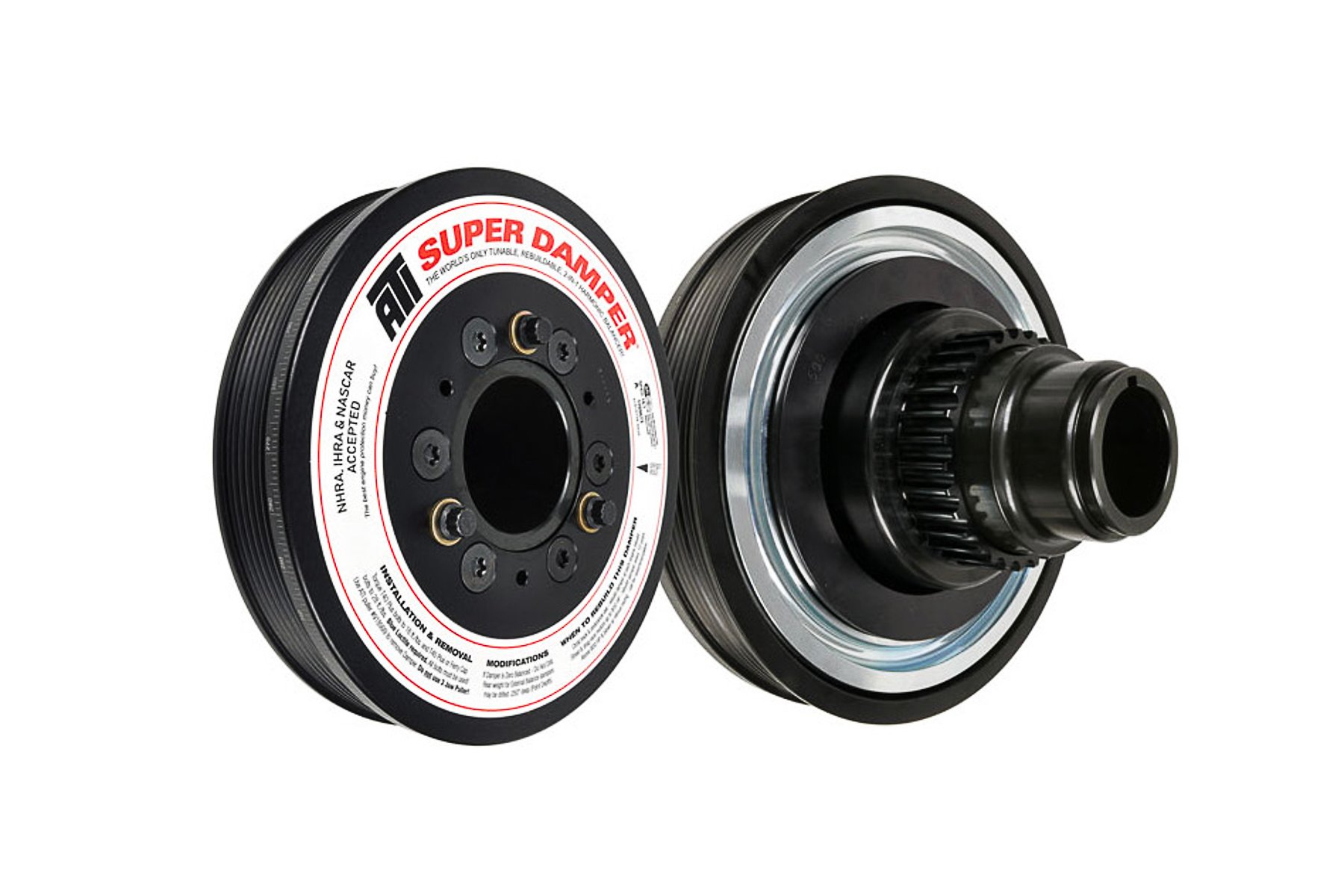In 1966, the GM A-body was two years old and not exactly the pinnacle of handling or performance. A Chevelle Super Sport, Buick Grand Sport, or Pontiac GTO would provide some more horsepower and heavier duty running-gear; however, forget about stopping or cornering in these freight trains. It usually takes a great deal of ingenuity, a fat wallet, or both, to have a fast A-body that handles and stops.
Justin Nall’s ’66 Chevelle does just that. It runs 10-second quarter-miles, wins autocross events, and even hauls his family around on a regular basis; however, it didn’t start its life as a well-rounded performance car.
Justin’s parents, George and Miriam Nall, purchased this Chevelle, used, about thirty years ago. The car had a 350 small-block and Powerglide transmission, and served the family as a true driver, even enduring the Minnesota winters throughout its many miles of road trips and car cruises. It had been drag raced, and numerous small-blocks were swapped in and out of it. The car was finally laid to rest about the time Justin was in high school. The engine was swapped into another car, and the ’66 Chevelle sat in the corner of the garage, awaiting a new destiny.
It was Justin’s experience with his GMC Typhoon in high school that sold him on the idea to turbocharge the Chevelle. After graduating college and becoming an engineer, Justin’s aspirations for the sleeping car quickly came to fruition. The body was still in very nice shape; in fact, the Lemonwood Yellow paint is still original. The initial LS swap was more-or-less a typical “junkyard” turbo swap. Justin did most of the work himself, with the help of local tuners and “been there, done that” advice from other enthusiasts on LS1tech.com. Many of his parts came second-hand, sourced from that site.
The initial engine swap took about two years. Right off the bat, the car put down 600 horsepower to the wheels. Over the next five years, while keeping the Chevelle on the road, Justin built up the car’s chassis, suspension, and driveline to handle the big power he currently makes.
Powertrain:
The engine is a 6.0-liter LQ4 out of a 2004 Silverado. Jack Stevens of Rosemont, Minnesota assembled the short block with Callies H-beam rods and Wiseco forged pistons. Stevens freshened up a set of 243 “LS6” heads, which were CNC ported by Next Gen Performance. Tuned Port Induction Specialties (TPIS) of Chaska, MN completed machine work on the engine. The engine is equipped with a Comp Cams hydraulic roller camshaft and factory rocker arms outfitted with a Straub Technologies trunion upgrade. The oiling system is completed with a Melling, stock-replacement oil pump, a modified F-body, LS1 oil pan, and an Ishihara-Johnson crank scraper.
An Edelbrock Pro Flo LS1 intake manifold and fuel rails are connected to Fuel Injector Connection injectors. Justin used a Magnafuel 4303 fuel pump and Aeromotive fuel pressure regulator for the fuel system. Carl Thomas of St. Paul, Minnesota tuned the car using an HP-Tuners 3-bar operating system, which runs the car on E-85.
The car’s power comes from a BorgWarner S480 turbocharger, built by Work Turbo. Justin plumbed the system himself, using truck exhaust manifolds v-band clamped to 2 ¼-inch hot-side piping and 3-inch charge piping. A Treadstone air-to-air intercooler keeps the charge cool when the boost is turned up. Justin used a JGS Turbo blowoff valve and wastegate, and controls the car’s boost with a TurboSmart Eboost2 boost controller. What’s left of the engine and turbo’s sound exits through a 4-inch Dynatech muffler.
The 4l80e transmission was built by John Freuler of Lakeville, Minnesota, transfers power to the wheels. Freuler used a CK Performance separator plate kit and 36-element sprag upgrade to enhance the transmission’s life. A Performance Torque Converter (PTC) 3400 RPM stall converter maintains the lockup function. Justin used a Shiftworks conversion kit to adapt the car’s floor shifter to work with the new, four-speed transmission. The 12-bolt, GM rear end contains 3.31:1 gears, strange axles, and an Eaton posi-traction.
Chassis and Interior
Many hours went into finding the right components that make this race-winning combination. Justin used front and rear sway bars, front and rear control arms, and a bump steer kit, all made by UMI Performance. There are Viking coil-over shocks on all four corners and Classic Performance Parts (CPP) control arm braces. Justin fabricated a custom front chassis brace to accommodate the car’s power. These suspension adjustments allow Justin to drive to races in comfort, then tighten everything up when he needs every last bit of performance on the track.
Justin converted the front spindles with a CPP aluminum hub, which accommodated C5 Corvette 12.88 inch rotors. In the rear, he retrofitted with fourth generation F-body calipers and rotors to provide 4-wheel disc brakes. BMW replica 18×9.5-inch wheels complete the pro-touring look.
Take note of the car's hood: Justin used Z-24 Lumina hood vents to exhaust some of that enormous engine bay heat. Aside from those and the black, vinyl wrap, the body is original.
Justin Nall’s Chevelle has made 921 horsepower and 780 lb/ft of torque to the rear wheels. There is likely more left in it. However, Justin appreciates being able to drive it home from a race in one piece. In 2018 alone, Justin has won autocross events including Goodguys Autocross-Street Machine Class, Street Machine Nationals-Street Machine Challenge, UMI Performance Autocross Challenge, and two time wins at the Amery Airport Radar Run; he has placed competitively in several other races. Justin continues to improve the car’s capabilities and intends to someday hand it down to his son. Check out Justin’s Instagram @thatyellowchevelle to follow his Chevelle’s continued legacy.


